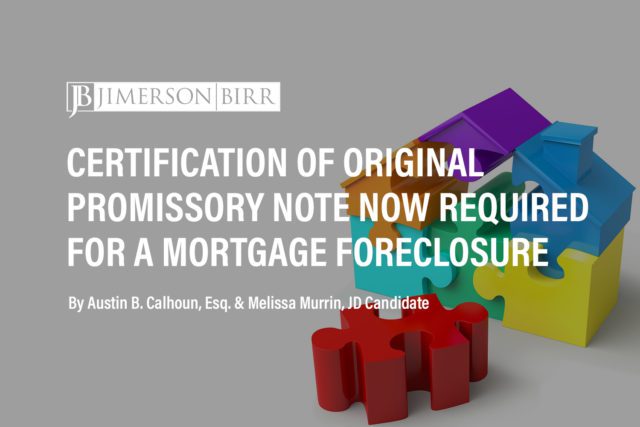What is a breach of promissory note?
In Florida, a promissory note is a legal document that outlines a borrower’s promise to repay a specific amount of money to a lender within a particular time. A breach of a promissory note occurs when the borrower fails to repay the loan as agreed upon in the note. There are two types of promissory notes: collateralized, where assets act as collateral upon breach, and unsecured, which are only collectible through a lawsuit.
If a borrower breaches a promissory note in Florida, the lender can pursue legal action to recover the outstanding balance of the loan, as well as any owed interest and fees. The lender may also be entitled to recover legal fees and other costs associated with the lawsuit.
In Florida, a typical example of this form of breach occurs when a borrower fails to make a required payment on the date specified in the promissory note. For instance, if the promissory note requires the borrower to make monthly payments of $500 starting from a specific date, and the borrower fails to make a payment on one of the specified dates, they would be in breach of the promissory note.
Need help with a potential breach of a promissory note? Schedule your consultation today with a top business litigation attorney.
What legal issues typically arise related to a breach of promissory note?
The following disputes are among the most common to a breach of a promissory note:
- Determining the existence and terms of the promissory note: It may be necessary to establish the existence and terms of the agreement, such as the amount owed, the interest rate, and the repayment schedule. However, the parties may fight over calculating these figures, and the defendant might argue against the existence of a promissory note at all.
- Proving the defendant’s breach: The plaintiff must establish that the defendant has breached the promissory note, which might involve proving the borrower failed to make a payment as required or defaulted on the loan. The parties might disagree or argue over the defendant’s failure to pay or the amount the defendant was obligated to pay.
- Disputes over the terms of the promissory note: Disputes may arise over the promissory note itself, such as what constitutes a default or what remedies the plaintiff may pursue if the defendant breaches the note.
What are relevant laws related to a breach of promissory note in Florida?
Florida statutes providing governance for a breach of promissory note action include the following::
- Section 47.061–This statute clarifies claimants must bring an action for a breach of promissory note in the county where parties signed the note.
- Section 95.11–This statute clarifies that the statute of limitations in Florida is five years.
- Section 673.6041–A voluntary act could negate a promissory note, which would remove the ability to file an action for a breach.
- Section 673.3011–This outlines who is allowed to enforce and sue for breach of a promissory note.
- Section 673.3051–This statute lists some defenses available when a lender tries to recoup the money lent under a promissory note.
What is required to prove a case of breach of promissory note in Florida?
The elements of a claim of breach of promissory note are:
- Defendant executed a promissory note;
- Plaintiff owns and holds the note;
- Defendant either:
- failed to pay the note when due; or
- failed to pay the installment payment due on the note, and the plaintiff elected to accelerate payment of the remaining balance; and
- Defendant owes the plaintiff a specific amount on the note that is due with interest since a specific date
When a set of facts is appropriate to meet the requirements of breach of promissory note, there are many paths a claimant may take. We are value-based attorneys at Jimerson Birr, which means we look at each action with our clients from the point of view of costs and benefits while reducing liability. Then, based on our client’s objectives, we chart a path forward to seek appropriate remedies, such as:
- Monetary damages: The most common remedy for breach of a promissory note is a monetary award, which may include the amount of the principal owed, any interest that has accrued, and any fees or penalties agreed to in the promissory note.
- Specific performance: In some cases, the lender may seek an order from the court requiring the borrower to perform the obligations under the promissory note, such as making payments on the loan.
- Acceleration: As long as the promissory note provides this option, the lender may accelerate the remaining balance due and make it payable immediately.
- Foreclosure: If collateral secures the promissory note, such as a home or a car, the lender may foreclose on that collateral to satisfy the debt.
To see what actions may be available for your unique situation, please contact our office to set up your initial consultation.
What are common defenses to breach of a promissory note in Florida?
The primary defenses to a breach of promissory note in Florida include:
- Failure to establish a valid promissory note: The lender must prove that a valid promissory note exists and that the borrower entered the agreement voluntarily and fully knows its terms. If the lender cannot establish the validity of the promissory note, this may be a defense to the claim of breach.
- Duress, coercion, or fraud: If the plaintiff or a third party forced the defendant to sign the promissory note under duress, coercion, or fraud, this might be a valid defense to a claim of breach.
- Statute of frauds: Under Florida law, if the promissory note was to last longer than a year, it must be written. If the plaintiff cannot produce the written document, the claim might fail under the statute of frauds.
- Waiver: Under Florida law, if the plaintiff has voluntarily discharged, destroyed, or canceled the promissory note, they have waived a right to later state a claim for a breach of that note.
- Documentary taxes: Promissory notes with unpaid documentary taxes are, under Florida law, enforceable. When defending against the breach, the defendant might bring this up.
- Unconscionable terms: The borrower may argue that the terms of the promissory note are so one-sided or unfair that they are unconscionable and unenforceable.
- Statute of Limitations: The defendant could argue that the plaintiff alleged the breach after the five-year statute of limitations.
- Payment or performance: The borrower may argue that they have fully paid or performed the obligations under the promissory note or that the lender breached the agreement first, which, if true, would nullify a claim of breach.
To see what defenses may be available for your unique situation, please contact our office to set up your initial consultation.
Have more questions about a breach of promissory note-related situation?
Crucially, this overview of a breach of a promissory note does not begin to cover all the laws implicated by this issue or the factors that may compel the application of such laws. Every case is unique, and the laws can produce different outcomes depending on the individual circumstances.
Jimerson Birr attorneys guide our clients to help make informed decisions while ensuring their rights are respected and protected. Our lawyers are highly trained and experienced in the nuances of the law, so they can accurately interpret statutes and case law and holistically prepare individuals or companies for their legal endeavors. Through this intense personal investment and advocacy, our lawyers will help resolve the issue’s complicated legal problems efficiently and effectively.
Having a Jimerson Birr attorney on your side means securing a team of seasoned, multi-dimensional, cross-functional legal professionals. Whether it is a transaction, an operational issue, a regulatory challenge, or a contested legal predicament that may require court intervention, we remain a tireless advocate every step of the way. Being a value-added law firm means putting the client at the forefront of everything we do. We use our experience to help our clients navigate even the most complex problems and come out the other side triumphant.
If you want to understand your case, the merits of your claim or defense, potential monetary awards, or the amount of exposure you face, you should speak with a qualified Jimerson Birr lawyer. Our experienced team of attorneys is here to help. Call Jimerson Birr at (904) 389-0050 or use the contact form to set up a consultation.

We live by our 7 Superior Service Commitments
- Conferring Client-Defined Value
- Efficient and Cost-Effective
- Accessibility
- Delivering an Experience While Delivering Results
- Meaningful and Enduring Partnership
- Exceptional Communication Based Upon Listening
- Accountability to Goals









